At Glowskinhub.com, we believe beauty isn’t just a look—it’s a feeling

Banish Dry Skin Overnight: Your Guide to Hydration
Dry Skin can be a persistent issue, leaving your Skin feeling tight, flaky, and uncomfortable. Achieving hydration is key to banishing dryness and regaining a healthy, radiant glow.
An effective overnight routine can work wonders in locking in moisture and rejuvenating your Skin while you sleep. By incorporating the right products and techniques, you can wake up to softer, more supple Skin.
Understanding the importance of addressing dry Skin and adopting a consistent hydration routine can make a significant difference in your Skin’s health and appearance.
Key Takeaways
- Understanding dry Skin and its causes
- The importance of hydration in Skin care
- Simple steps to an effective overnight hydration routine
- Product recommendations for locking in moisture
- Tips for maintaining healthy, hydrated Skin
Understanding the Causes of Dry Skin
Understanding the causes of dry Skin is crucial for effective treatment and prevention. Dry Skin, or xerosis, occurs when the Skin’s natural moisture barrier is disrupted, leading to dehydration and discomfort.
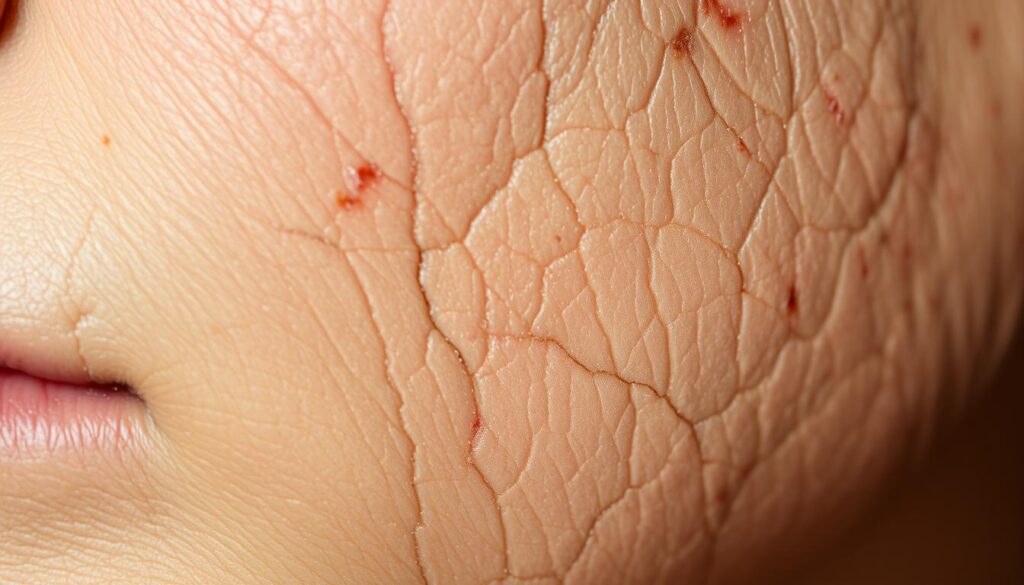
Environmental Factors That Deplete Moisture
Environmental factors play a significant role in depleting the Skin’s moisture. Low humidity, especially in air-conditioned or heated spaces, can dry out the Skin. Exposure to harsh winds and cold temperatures also strips the Skin of its natural oils. Furthermore, prolonged exposure to UV radiation can damage the Skin’s barrier function, leading to dryness.
Internal Causes of Skin Dehydration
Internal factors can also contribute to dry Skin. Aging is a significant factor, as the Skin’s ability to retain moisture decreases over time. Certain medical conditions, such as diabetes, hypothyroidism, and eczema, can also lead to dry Skin. Additionally, nutritional deficiencies, particularly in vitamins A, C, and E, can impact Skin health.
Seasonal Changes and Their Impact
Seasonal changes can significantly affect Skin hydration. Winter months bring cold temperatures and low humidity, exacerbating dry Skin. Conversely, summer can also be challenging due to increased sun exposure and heat, which can strip the Skin of its natural moisture. As the seasons change, adjusting your skincare routine can help mitigate these effects.
“The key to managing dry Skin lies in understanding its causes and adapting your skincare routine accordingly.”
The Science Behind Overnight Skin Hydration
Overnight Skin hydration is not just a matter of applying moisturizer; it’s rooted in the Skin’s natural repair cycle. As we sleep, our Skin works to repair and rejuvenate itself, making it an ideal time for hydration.
Why Skin Repairs More Efficiently at Night
The Skin’s natural circadian rhythm plays a significant role in its repair processes. At night, the Skin’s blood flow increases, and the turnover of cells accelerates, making it more receptive to hydration. This natural process is crucial for overnight Skin repair, allowing the Skin to recover from the day’s environmental stresses.
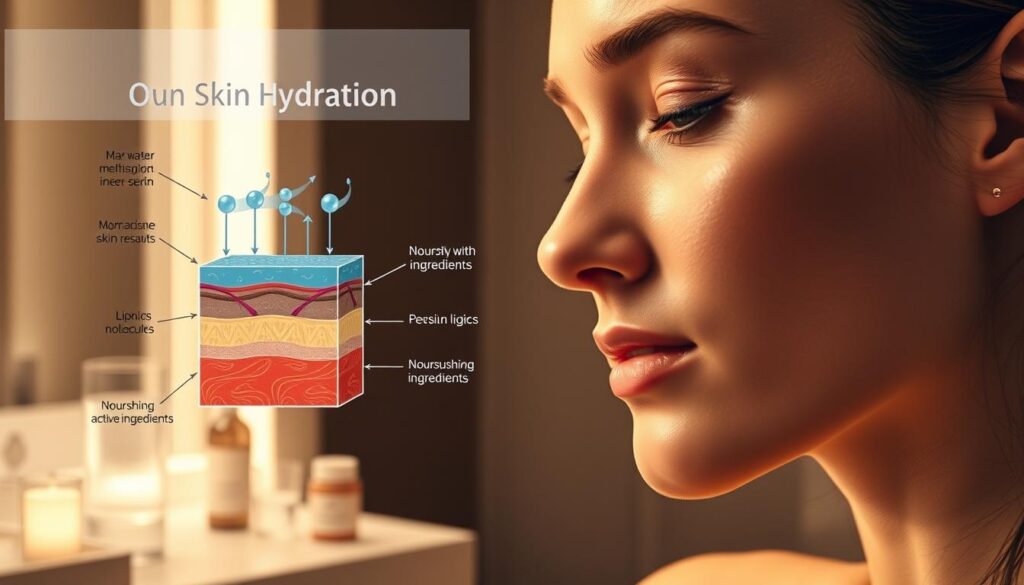
The Skin’s Natural Moisture Barrier
The Skin’s natural moisture barrier is its first line of defense against dryness. This barrier is composed of lipids and natural moisturizing factors that help retain Skin hydration. When this barrier is intact, it prevents excessive water loss and keeps the Skin hydrated. However, when it’s compromised, the Skin becomes vulnerable to dryness and irritation.
| Component | Function | Impact on Skin Hydration |
|---|---|---|
| Lipids | Form the barrier | Prevents water loss |
| Natural Moisturizing Factors (NMFs) | Attract and retain water | Maintains hydration levels |
Transepidermal Water Loss Explained
Transepidermal water loss (TEWL) refers to the amount of water that evaporates from the Skin’s surface. High TEWL can lead to dry, dehydrated Skin. Factors such as harsh weather, Skin conditions, and certain products can increase TEWL. Understanding TEWL is crucial for maintaining the moisture barrier and ensuring effective Skin hydration.
By understanding these processes, individuals can better tailor their skincare routines to maximize overnight hydration and repair.
Essential Products for Your Nighttime Hydration Arsenal
To combat dry Skin effectively, it’s crucial to arm yourself with the right nighttime hydration products. A well-curated selection can make all the difference in achieving hydrated, supple Skin by morning.
Humectants: The Water-Attracting Heroes
Humectants are ingredients that attract and retain moisture in the Skin. They are crucial for maintaining hydration levels overnight. Common humectants include hyaluronic acid, glycerin, and sorbitol. These ingredients help in drawing water into the Skin, making it feel softer and more supple.
Emollients: Softening and Smoothing Agents
Emollients fill gaps between Skin cells, making the Skin feel smooth and soft. They are essential for repairing dry, rough patches. Examples of emollients include ceramides, fatty acids, and cholesterol. By incorporating emollients into your nighttime routine, you can significantly improve Skin texture.
Occlusives: Sealing in the Moisture
Occlusives create a physical barrier on the Skin’s surface, preventing moisture loss. They are the most effective when applied as the last layer in your nighttime routine. Petroleum jelly, dimethicone, and mineral oil are common occlusives. By sealing in the moisture, occlusives help in maximizing the effectiveness of other hydration products.
Product Layering Strategy for Maximum Benefits
The key to maximizing the benefits of your nighttime hydration products lies in layering them correctly. Start with the lightest consistency and gradually move to thicker products. A typical layering order is: cleanser, toner, Serum (containing humectants), moisturizer (with emollients), and finally, an occlusive to seal everything in.
| Product Type | Examples | Function |
|---|---|---|
| Humectants | Hyaluronic acid, Glycerin | Attract and retain moisture |
| Emollients | Ceramides, Fatty acids | Fill gaps between Skin cells |
| Occlusives | Petroleum jelly, Dimethicone | Create a barrier to prevent moisture loss |
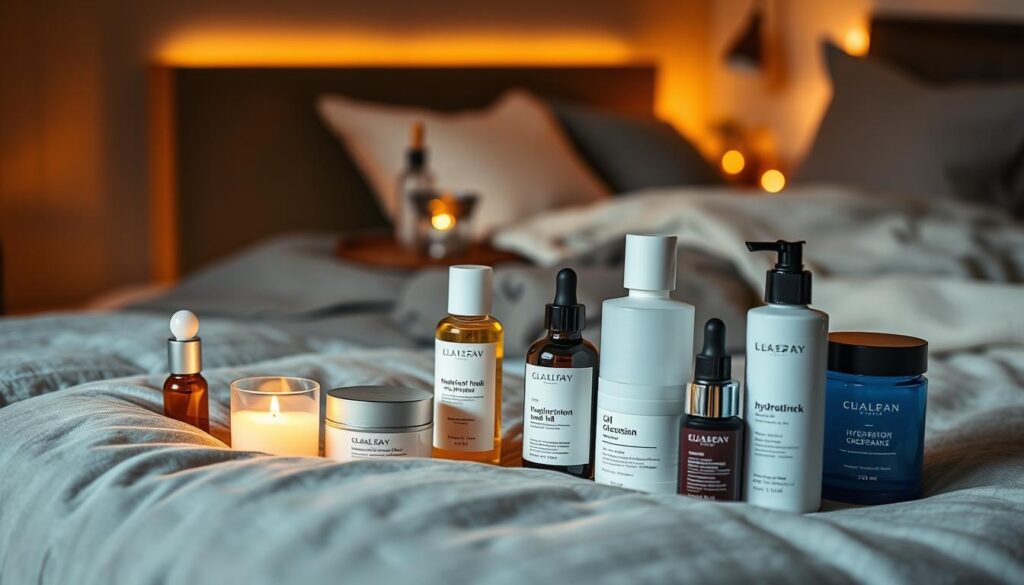
Your Complete Overnight Routine for Dry Patches
Establishing a consistent overnight routine is crucial for tackling dry patches effectively. By following a well-structured regimen, you can significantly improve the health and appearance of your Skin.
Pre-Bedtime Cleansing Without Stripping Moisture
Cleansing before bed is essential, but it’s equally important to do so without stripping your Skin of its natural moisture. Use a gentle, hydrating cleanser that effectively removes dirt and impurities without drying out your Skin. Consider using a micellar water or a cream-based cleanser that maintains the Skin’s natural barrier.
When rinsing, use lukewarm water instead of hot water to help preserve the Skin’s natural oils. Pat dry with a towel; avoid rubbing, which can irritate dry patches.
Targeted Treatment Application Techniques
After cleansing, apply targeted treatments directly to dry patches. Use a gentle exfoliant containing alpha-hydroxy acids (AHAs) or beta-hydroxy acids (BHAs) to remove dead Skin cells and enhance penetration of subsequent products. For intense hydration, apply a hydrating Serum or moisturizing treatment rich in emollients and humectants.
Apply treatments using gentle, upward strokes to promote absorption and minimize irritation. Be sure to cover all affected areas thoroughly.
Sealing Methods for Maximum Absorption
To maximize the absorption of your treatments, seal them in with an occlusive layer. Use a rich moisturizer or occlusive cream that contains ingredients like petrolatum, dimethicone, or shea butter. This helps lock in moisture and protect your Skin from environmental stressors.
Apply the occlusive layer as the final step in your routine, ensuring that it’s thick enough to provide a barrier but not so thick that it feels uncomfortable.
Creating the Ideal Sleep Environment for Skin
The environment in which you sleep can significantly impact your Skin’s health. Maintain a cool, humid environment to prevent moisture loss. Consider using a humidifier in dry climates or during winter months when indoor heating can dry out the air.
Additionally, switch to silk or satin pillowcases, as these materials can reduce friction and prevent irritation compared to cotton.
Specialized Solutions for Different Body Areas
The battle against dry Skin involves understanding the specific needs of various body areas. Different parts of our body have unique Skin characteristics that require tailored care. In this section, we’ll explore effective solutions for common dry Skin areas.
Facial Dry Patches: Gentle Approaches
Facial dry patches demand gentle care to restore moisture without causing irritation. Using a humectant-rich Serum can help attract and retain moisture. Look for products containing hyaluronic acid or glycerin. Applying a gentle exfoliant once or twice a week can also help remove dead Skin cells and improve Skin texture.
Some effective ingredients for facial dry patches include:
- Ceramides to repair the Skin barrier
- Niaminamide to improve Skin elasticity
- Hyaluronic acid for intense hydration
Hands and Feet: Intensive Overnight Treatments
Dry hands and feet require intensive care, especially overnight. Using thick moisturizing gloves and socks can help lock in moisture. For hands, apply a rich hand cream before bed and wear gloves. For feet, a foot cream or heel balm followed by socks can provide intense hydration.
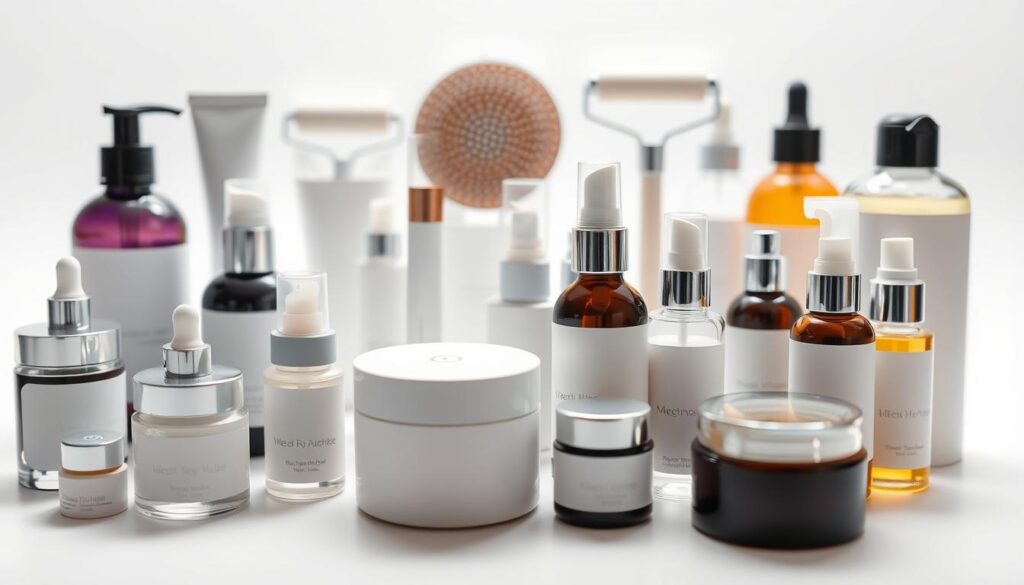
Elbows, Knees, and Other Stubborn Areas
Elbows and knees are prone to dryness due to their unique Skin structure. Using a gentle exfoliating scrub can help remove dead Skin cells. Follow up with a rich moisturizer or a product containing urea to lock in moisture.
Sensitive Areas Requiring Special Care
Sensitive areas, such as the Skin around the eyes, require extra gentle care. Use products specifically formulated for these delicate areas, and avoid harsh ingredients that can cause irritation.
By tailoring our care to the specific needs of different body areas, we can effectively combat dry Skin and achieve healthier, more hydrated Skin overall.
Natural and DIY Overnight Hydration Remedies
Unlock the power of natural ingredients to transform your dry Skin overnight. Nature offers a plethora of remedies that can be easily incorporated into your skincare routine, providing intense hydration and nourishment while you sleep.
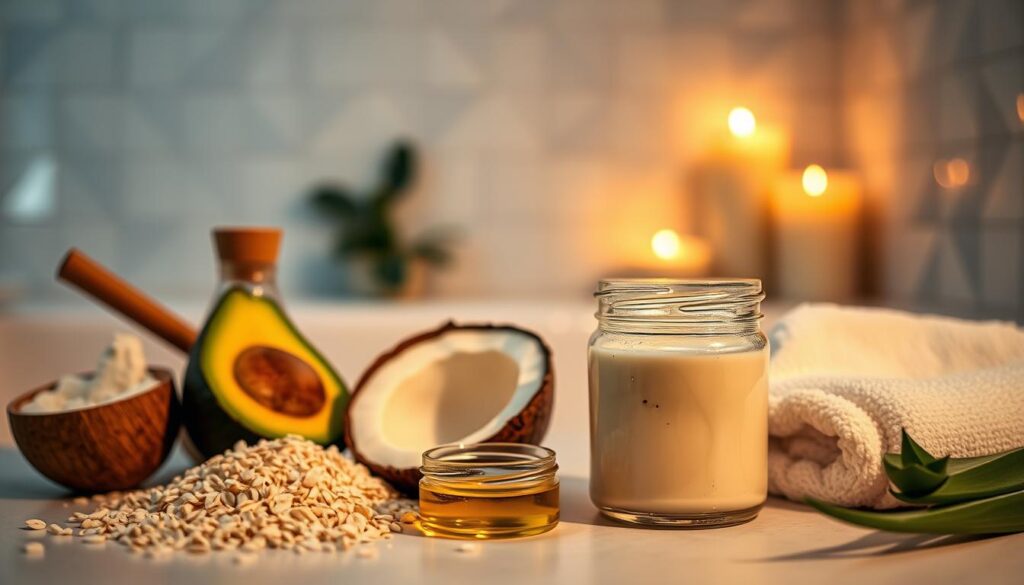
Kitchen Ingredients That Transform Skin Overnight
Your kitchen is a treasure trove of ingredients that can work wonders on dry Skin. Coconut oil, for instance, is rich in fatty acids that deeply moisturize and repair the Skin’s barrier. Apply a thin layer before bed and wake up to softer, more hydrated Skin.
Another effective ingredient is honey, known for its humectant properties that attract and retain moisture. Applying a honey mask overnight can help lock in hydration and soothe dry patches.
Homemade Overnight Masks and Treatments
Creating your own overnight masks and treatments is simpler than you think. A mixture of yogurt and oatmeal can provide soothing relief to dry, irritated Skin. The lactic acid in yogurt gently exfoliates, while oatmeal calms inflammation.
For a more intense treatment, consider a shea butter and aloe vera mask. Shea butter’s emollient properties combined with aloe vera’s soothing effects can transform dry Skin overnight, leaving it feeling soft and supple.
Essential Oils for Dry Skin Relief
Essential oils can be a valuable addition to your overnight skincare routine. Oils like lavender and geranium have anti-inflammatory properties that can help soothe dry, irritated Skin. When using essential oils, always dilute them with a carrier oil to avoid irritation.
Application Tips for DIY Treatments
For maximum effectiveness, apply your DIY treatments correctly. Gently massage the product into your Skin to enhance absorption. Covering the area with a breathable cloth or wearing gloves can also help retain moisture and warmth, boosting the treatment’s efficacy.
Lifestyle Factors That Support Overnight Skin Hydration
Your lifestyle choices can significantly impact your Skin’s ability to retain moisture overnight. While topical treatments are crucial, certain daily habits can either support or hinder your Skin’s hydration levels.
Hydration From Within: Dietary Considerations
A well-balanced diet rich in omega-3 fatty acids, vitamins A, C, and E, and antioxidants can significantly enhance your Skin’s hydration. Foods like salmon, avocados, and nuts are not only beneficial for overall health but also for maintaining Skin moisture.
Increasing your intake of hydrating foods such as cucumbers, watermelon, and celery can also contribute to better Skin hydration. It’s equally important to drink plenty of water throughout the day to keep your Skin hydrated from the inside out.
| Food | Nutritional Benefit |
|---|---|
| Salmon | Rich in Omega-3 fatty acids |
| Avocados | High in Vitamins A, C, and E |
| Nuts | Rich in Antioxidants |
Sleep Quality and Its Effect on Skin Repair
Quality sleep is essential for Skin health as it allows your Skin to repair and regenerate. During deep sleep, your body increases blood flow to the Skin, helping to nourish and hydrate it.
To improve sleep quality, maintain a consistent sleep schedule, create a relaxing bedtime routine, and ensure your sleep environment is cool, dark, and quiet. This can significantly enhance your Skin’s ability to retain moisture overnight.
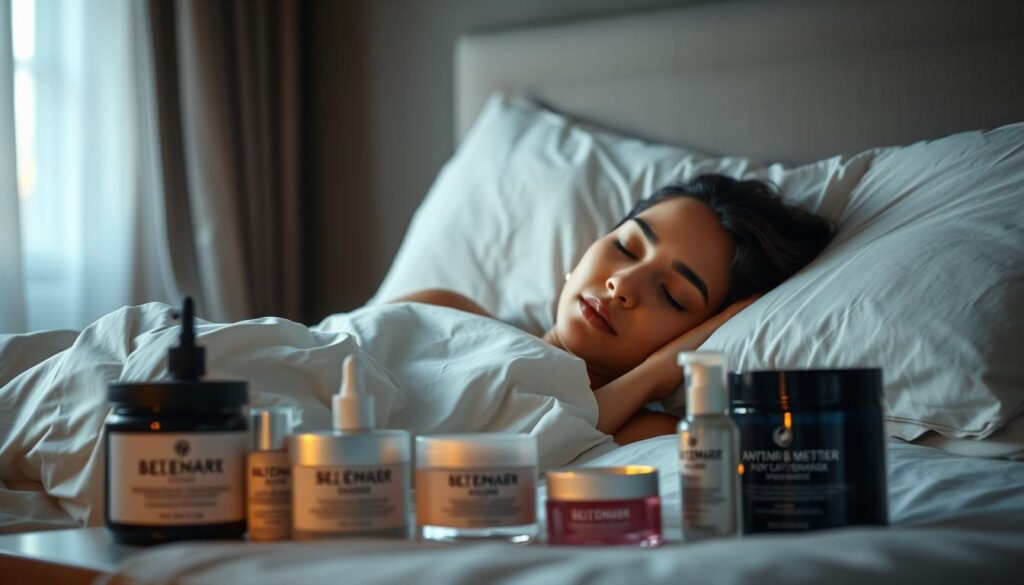
Stress Management for Better Skin Health
High stress levels can negatively impact your Skin’s hydration by triggering inflammation and breaking down collagen. Engaging in stress-reducing activities like yoga, meditation, or deep breathing exercises can help mitigate this effect.
By managing stress effectively, you can promote healthier, more hydrated Skin. Regular exercise and adequate sleep also play a crucial role in stress management and overall Skin health.
When to Seek Professional Help for Persistent Dry Skin
Persistent dry Skin can be more than just a nuisance; it can be a sign of an underlying medical condition that requires attention. While many cases of dry Skin can be managed with lifestyle changes and over-the-counter treatments, some instances may necessitate professional help.
Signs Your Dry Skin Might Be a Medical Condition
Certain symptoms can indicate that your dry Skin is more than just a cosmetic issue. Look out for:
- Severe dryness that cracks or bleeds
- Dry Skin accompanied by redness, swelling, or itching
- Skin that’s persistently dry despite consistent moisturizing
- Dry patches that don’t improve with over-the-counter treatments
If you’re experiencing any of these symptoms, it’s time to consult a dermatologist.
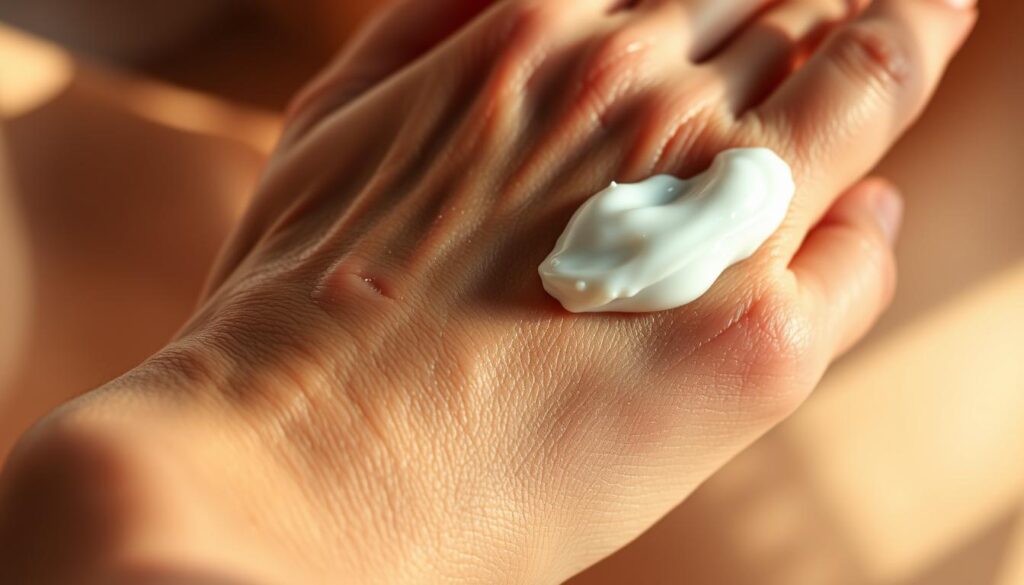
Dermatologist-Recommended Treatments
A dermatologist can provide personalized recommendations for treating persistent dry Skin. Some common treatments include:
- Prescription-strength moisturizers
- Topical corticosteroids to reduce inflammation
- Specialized creams or ointments for specific Skin conditions
These treatments can be more effective than over-the-counter options and are tailored to your specific Skin condition.
Prescription Options for Severe Cases
In severe cases of dry Skin, or when dry Skin is a symptom of an underlying condition, prescription medications may be necessary. These can include:
- Oral medications to address underlying conditions
- Prescription creams or ointments with higher concentrations of active ingredients
- Biologic treatments for conditions like eczema or psoriasis
A dermatologist can determine the best course of treatment based on your specific condition and medical history.
Don’t hesitate to seek professional help if you’re struggling with persistent dry Skin. With the right treatment, you can find relief and improve the health of your Skin.
Conclusion
Achieving healthy, hydrated Skin is within reach. By understanding the causes of dry Skin and implementing a consistent overnight hydration routine, you can say goodbye to dry patches and hello to a radiant complexion.
A well-structured hydration routine is key to maintaining healthy Skin. This involves using the right products, such as humectants, emollients, and occlusives, and adopting good sleep habits. By combining these elements, you can create an effective dry Skin conclusion to your daily skincare struggles.
To recap, a hydration routine summary includes cleansing your Skin gently, applying targeted treatments, and sealing in moisture. Don’t forget to maintain a healthy lifestyle, including a balanced diet and stress management, to support your Skin’s natural repair process.
By following these simple steps and being consistent, you can wake up to hydrated, healthy-looking Skin. Start your journey today and discover the transformative power of overnight hydration.





